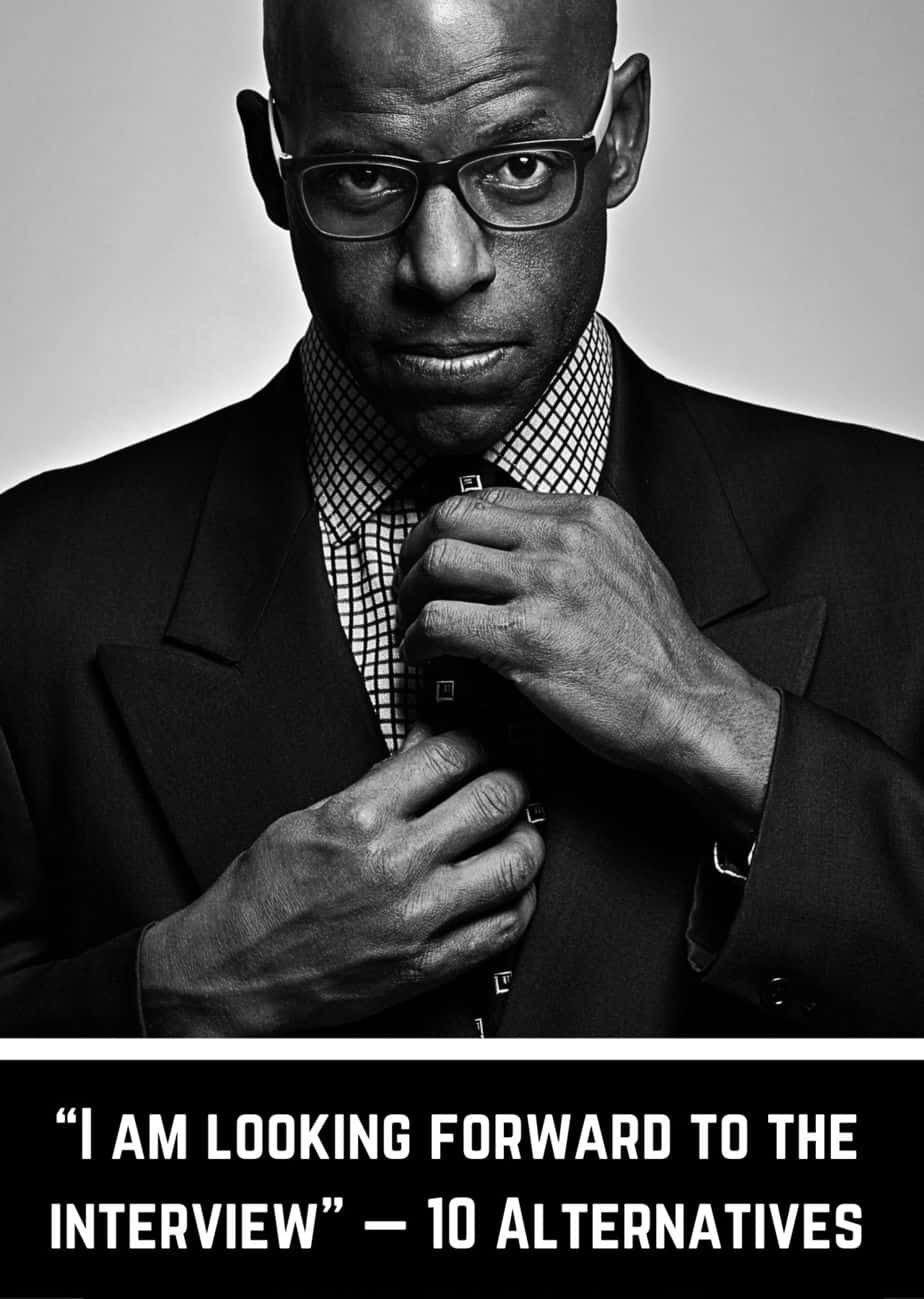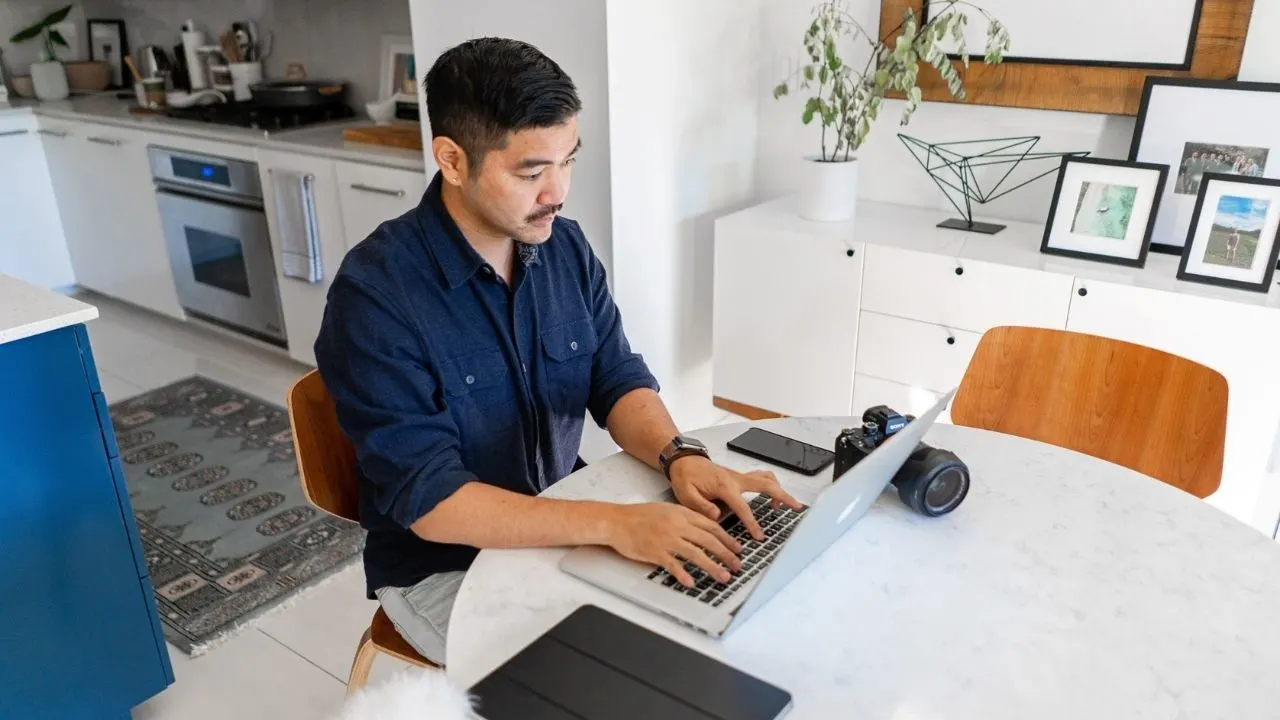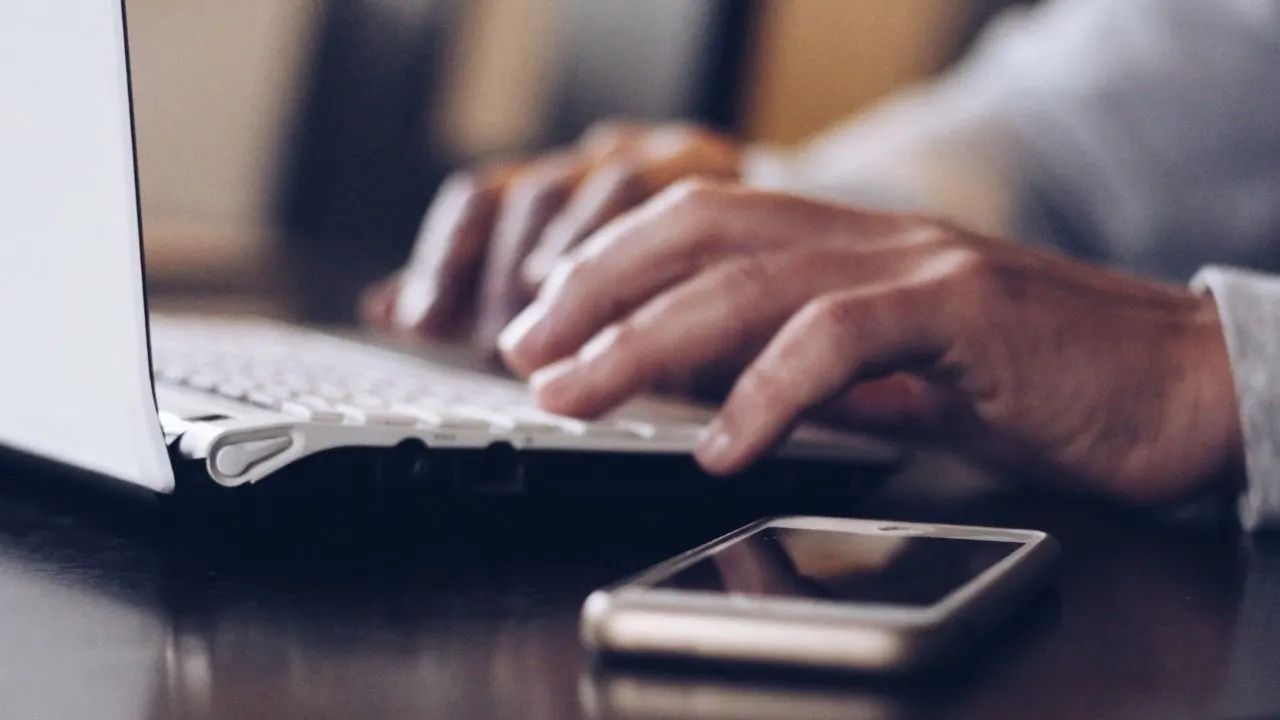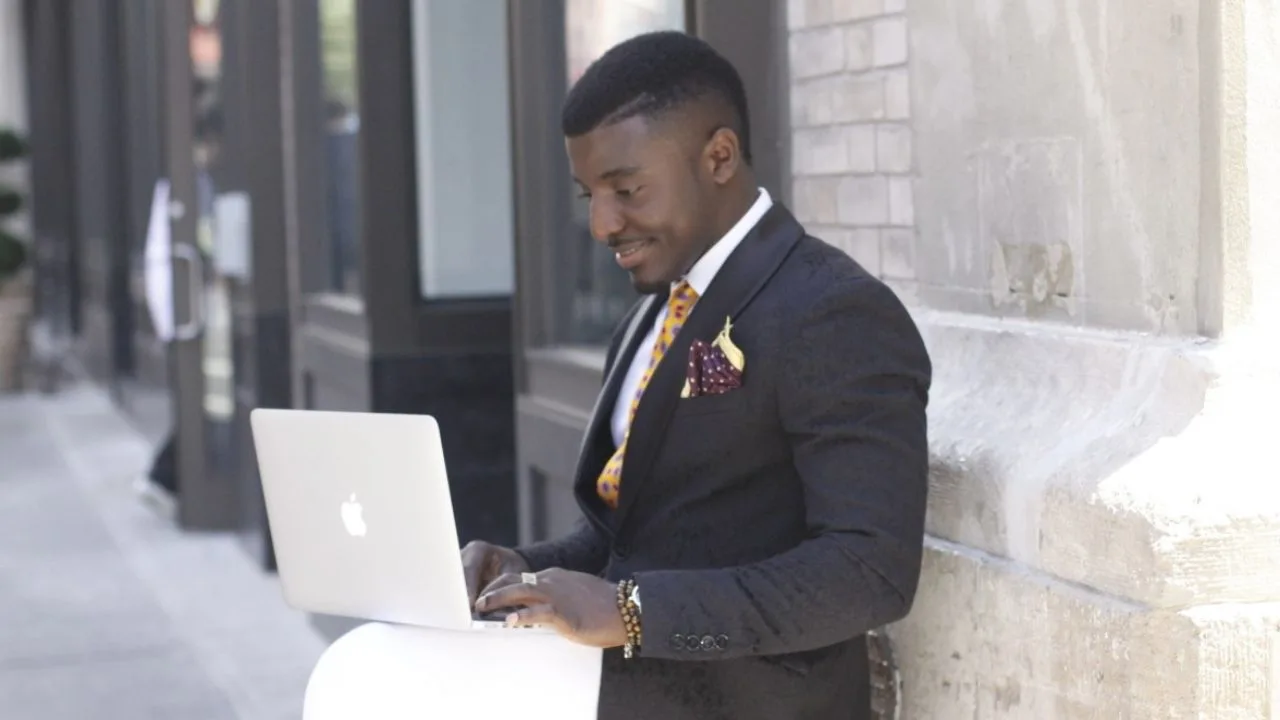Are you having a hard time making a good impression in your upcoming interview at a prospective school or company?
Or, you’ve already come across the expression “I am looking forward to the interview,” but you don’t want to use it because it kind of sounds formulaic and worn-out?
Worry no more because we’ve got your back, dearest language enthusiast!
Please read our humble article covering the contextual and grammatical nuances of “I am looking forward to the interview,” as well as its alternative expressions.
What does “I am looking forward to the interview” mean?
“I am looking forward to the interview” is a commonly used statement in business English to express excitement or anticipation toward an upcoming, planned discussion. The verb in this expression can be changed into its simple present form “to look forward to” to increase its formality level.
A grammatical perspective on “I am looking forward to the interview”
“To look forward to” is a transitive phrasal verb with an idiomatic connotation that suggests feelings of excitement toward an upcoming event or activity.
Transitive verbs need to act upon a direct object that usually comes afterward. On the other hand, those that do not need a direct object are classified as intransitive verbs.
“To look forward to” comes from the base verb “to look” which is both stative and dynamic at the same time.
Stative verbs tell us about “states” rather than actual actions. Some examples of stative verbs include words that describe emotions and perceptions such as “to prefer,” “to understand,” and “to desire.”
Meanwhile, dynamic verbs demonstrate activities, accomplishments, or achievements, such as “to throw,” “to kick,” “to work,” “to study,” and “to read.”
The main difference between a stative and a dynamic verb lies upon the grammatical standard that while we can inflect the latter in its progressive or continuous form, we cannot do that with the former.
Since “to look forward to” is simultaneously considered as a stative and dynamic verb, this means that we can conveniently use it in either its simple or progressive tense.
However, as you may figure, the slight nuances that we notice in the way sentences could be constructed exist for a reason.
Let’s uncover the subtleties behind “I am looking forward to the interview” below.

Formality levels behind “to look forward to”
Language register refers to the variety of formality levels that we use depending on the context in which a language is bound to operate.
In some cultures, language users are expected to use formal language when talking with people who have higher economic statuses.
While in others, age or gender may govern how formally we should communicate and interact with the members of the society.
In a more general perspective, though, we use formal language to those individuals that we perceive as authority figures, like superiors and professors.
However, we use a casual speech style to those we see as our equals or intimates, such as our family members, friends, and close colleagues.
Knowing these details would help us make sense of the series of explanations below.
I look forward to the interview
The use of the simple present tense in “I look forward to the interview” suggests the most formalistic tonality among all the examples in this section.
A person using this particular tense aims to create a serious and polite impression to his or her addressee, such as someone who is seen as a “higher authority.”
Also, the use of this expression could suggest that the addressee is neither an equal nor an intimate connection to the language user.
Feel free to use “I look forward to the interview” when you are applying for a job for the first time in a company where you do not know anybody at all.
Furthermore, grammatically speaking, the use of the simple present verb in “I look forward to the interview” may also suggest that the meeting is not yet scheduled or planned.
If you opt to use this tense, you are implying that you feel excited about the interview from the moment you would use the expression until it occurs in an indefinite future time.
I am looking forward to the interview
Meanwhile, “I am looking forward to the interview” contains a verb that is inflected in its present continuous tense.
The present continuous or progressive tense suggests an action that is happening continuously at the moment of speaking.
So, what do you think this tells us?
In contrast with “I look forward to the interview,” the present continuous tense suggests that the act of anticipation is only true at the moment a speaker or writer uses the expression.
Besides, the use of the progressive tense also implies that the interview is already scheduled and is expected by both parties to take place on an agreed time and date.
Hence, you can use this construction, for example, in your email response to the recruiting specialist immediately after receiving your interview schedule.
As “I am looking forward to the interview” is considered less formal than “I look forward to the interview,” it is also best to reserve this expression after you’ve already had a couple of exchanges with your addressee.
In case you would like to decrease the formality level of this expression, you may use the contracted version of your subject and linking verb or “I’m,” thereby forming “I’m looking forward to the interview.”
If you still want to make your statement even more casual, then feel free to drop your subject and linking verb and just use “Looking forward to the interview.”
10 Alternatives for “I am looking forward to the interview”
Albeit practical and free from any possibilities of misinterpretation, “I am looking forward to the interview” also contains a formulaic connotation because of its frequent use.
This explains why many people seek alternatives online, as they want to get rid of the language monotony brought by the mechanical repetition of trite expressions.
To do away from this, here are formal and casual substitutes for “I am looking forward to the interview.” Please choose any of the options below as you wish.
Most of the time, you would have to use a neutral to a formal tone to say “I am looking forward to the interview,” depending on the overall context of the communication.
You would need any of the alternatives below when you are corresponding with your target employers, as well as in writing cover letters.
1. I am eager to discuss my application in detail at your earliest convenience

If you feel obliged to be extremely polite yet still assertive with the potential interviewer, you may use “I am eager to discuss my application in detail at your earliest convenience.”
This particular phrase is something you would see in the conclusion part of a job applicant’s cover letter, which is to be submitted together with a resume.
To comprehensively understand cover letter writing, feel free to check our full cover letter sample for waitresses with no experience as well as our barista cover letter.
Example:
2. I am eagerly anticipating the interview

But, if you want to keep your interest in the interview shorter, yet still assertive and formal at once, you may use “I am eagerly anticipating the interview” instead.
The next example is something you would notice in an email response to a scheduled interview confirmation, which is likely coming from the recruitment team.
Example:
Dear Ms. Wilson,
Thank you for considering my application. I am eagerly anticipating the interview. Please do not hesitate to let me know if you need further information from me prior to our meeting.
Kind regards,
Marguerite Clarkson
3. I am eagerly awaiting the interview

“I am eagerly awaiting the interview” is also another great formal way to express your enthusiasm toward a confirmed and scheduled interview.
The verb “to await” is different from “to wait” in the sense that the former is more often used as a transitive verb, whereas the latter is frequently used both as a transitive and intransitive verb.
Example:
Dear Mr. Cornell,
Thank you for your assistance and invitation, sir. I am eagerly awaiting the interview. Please let me know if you need further details before the interview next week.
Best regards,
Wallace J. Thompson
4. I am looking forward to speaking with you

“I am looking forward to speaking with you” is also another excellent way to convey your excitement towards an upcoming conversation, such as an interview.
Because this expression is clear and, therefore, free from ambiguities, anyone using this is formal correspondence should be able to leave a professional impression on the addressee.
Example:
Dear Mr. Miller,
Thank you very much for the interview invitation, sir. I am looking forward to speaking with you on Friday at your office. I will be there on time.
Sincerely,
Agatha Fitzgerald
5. I am looking forward to talking with you

If you feel like reducing the formality level of “speaking” a little bit, then conveniently choose “I am looking forward to talking with you” instead.
Example:
Dear Ms. Martinez,
Thank you very much for considering me for this exciting opportunity. I am looking forward to talking with you soon.
Respectfully yours,
Dakota Willard
6. I look forward to seeing you on Monday/next week/tomorrow

Alternatively, you may also simply express your interest in an interview by saying “I look forward to seeing you on Monday/next week/tomorrow” to your potential interviewer.
You also have to use this when you have already received an interview confirmation, as well as a definite schedule in the future, as stated in the confirmation message you have received.
Example:
Dear Ms. Cassandra Lee,
Thank you for considering me for the HR assistant position. I look forward to seeing you on Monday at your office. Should you need further details before the interview date, please don’t hesitate to contact me.
Kindest regards,
Pauline Bennet
7. I look forward to the interview on (interview date)

Including the date of your interview is a good way to tell your potential employer that you are fully aware of your interview details.
This would show that you have completely understood the confirmation message given to you by the prospective employer.
You may also structure your sentence as shown in the next example:
Example:
Dear Mr. Hubert Langdon,
This is to confirm the receipt of your email regarding my scheduled interview next week. Thank you so much for this opportunity. I look forward to the interview on Tuesday, November 7, 2021, at 9:00 am.
Best regards,
Matthew Anderson
8. I look forward to having the interview on (interview date)

Another way to convey your enthusiasm politely in an interview is by using “I look forward to having the interview on” followed by the interview date.
“To having the interview,” the direct object, suggests that you are excited about “experiencing the interview” in the future.
Example:
Dear Mr. Brian Cunningham,
I appreciate the opportunity to share more about how I can be an asset to your company, sir. I look forward to having the interview on the fifth of October, 2021. Please don’t hesitate to reach out for any adjustments or concerns before the date.
Best regards,
Shawn Callahan
9. I would love to have the interview at your earliest convenience

In case you get asked to choose from several interview schedules by the employer, you may respond by saying “I would love to have the interview at your earliest convenience.”
This statement will demonstrate that you are flexible yet, at the same time, you are also assertive in a positive way.
Dear Ms. Morrison,
Thank you for giving me a chance to showcase my knowledge and skills. I would love to have the interview at your earliest convenience, as any of the dates work for me. If you need further information, please feel free to reach out anytime.
Respectfully yours,
Caitlin Reids
10. I would love to have the opportunity to share more details during the interview

Last but not least, “I would love to have the opportunity to share more details during the interview” would be a great choice for a cover letter conclusion.
Not only does this sound polite and formal, but this also works as a call-to-action prompt to your possible employer, enticing them through your excitement about undergoing an interview.
Example:
I am eager to discuss my application in detail at your earliest convenience. For any questions and concerns, please feel free to contact me via email or mobile.
Grammatically incorrect alternatives for “I am looking forward to the interview”
In formal correspondence concerning job applications, grammatical errors could actually make your potential employers cringe, especially if your (pun intended) applying for a role that entails writing skills.
So, here are two grammatically ill-formed sentences that you need to avoid in conveying something like “I am looking forward to the interview.”
I am looking forward to have the interview
“To look forward to” is a phrasal-prepositional verb that needs a direct object in order to form a grammatical sentence.
The direct object needs to be a word or a phrase that functions as a noun, and hence, the gerund form of “to have” which is “having” should be used instead.
I look forward to interview on Monday
“To look forward to” is the verb in this kind of construction, so, again, you need a noun instead of a verb after the preposition “to.”
And since the event is already scheduled to take place rather than just a general one, you would also need the definite article “the” before the word “interview.”
However, you may also use the following statements if you are suggesting an interview with your potential employer.
Correct: I look forward to an interview opportunity with you.
Correct: I look forward to having an interview opportunity with you.
Contextualizing “I am looking forward to the interview”
Contextualization makes learning more relevant, which is why most, if not all, teachers keep their students engaged by linking their discussions to concrete scenarios.
By and large, the power of contextualization is most appropriate when we are trying to learn language-based concepts because unfamiliar language can easily isolate uninterested people.
For example, ordinary people would hardly understand what “extreme wind warning” from weather forecasts means without making sense of what exactly is going to happen to us when and if this kind of weather hits the ground.
Would this be “extreme” enough to send the roof of our house flying to the nearby state? Or would it be weak enough to only make the weeping willow’s leaves and branches dance?
Similarly, we can only make sense of the meaning behind the statement “I am looking forward to the interview” if we contextualize it.
“I am looking forward to the interview” is an expression you would commonly read in a job seeker’s email or cover letter to a recruitment staff or hiring manager.
In spoken contexts, though, you may also hear it from someone attempting to use language politely to another person who is seen as an authority figure, such as a superior or professor.
This person, of course, is already expecting to take part in an interview with the target addressee, which means that it is already a scheduled event.
You will most likely find “I am looking forward to the interview” in the final paragraph of an applicant’s email message after he or she receives a confirmation of a scheduled interview.
Ending an email professionally could be a bit arduous for those who don’t frequently engage in formal correspondence, and hence, learning some strategies on how to do it should help us move our needle further.
Bonus expressions related to “I am looking forward to the interview”
I look forward to meeting you soon
Politely accepting the interview may also be done as simply as showing enthusiasm toward the upcoming meeting, which also refers to the interview itself.
To do this, you can use the expression “I look forward to meeting you soon”; this one also bears a formal connotation – the default register to use in professional settings.
Even though you might think that this expression might be slightly overused or formulaic, using such a statement in business correspondence is never ineffective.
Sticking to expressions with formal connotative meanings is tantamount to showing tact and respect to the addressee, hence the significance.
So, do not feel nor think that you are less linguistically competent than the others if you use this one – not unless you are applying for a role related to creative writing.
You may use “I look forward to meeting you soon” as in the next example:
Dear Ms. Jones,
Thank you very much for considering my application. I look forward to meeting you soon, Ms. Jones. Should you have any concerns or clarifications before the interview date, please feel free to reach out anytime.
Best regards,
Madeline Cornell
I would love to have the interview at your convenience
However, in case you want to sound more personal and enthusiastic, you may also want to write “I would love to have the interview at your convenience.”
Note that you have to use this statement if and when the email sender is also asking for your availability for an interview.
As a job seeker, the default strategy to take is to show that you are flexible enough to establish trust and a good working relationship.
The use of the adverbial phrase “at your convenience” particularly means that you are giving the employer the chance to set the interview date, which is a sign of politeness.
In a nutshell, using this statement conveys enthusiasm, flexibility, and politeness, which are essential values that can be implied through appropriate language use.
Here’s how you can use “I would love to have the interview at your convenience” in context:
Dear Kate,
Thank you for your email and for considering my application. I would love to have the interview at your convenience. Please know that I am available as soon as you are. Should you need any other details from me, please feel free to reach out anytime.
Sincerely,
Austin Trumann
Frequently Asked Questions on “10 Other Ways to Say ‘I am looking forward to the interview’”
How can you express interest in an interview?
The rule of thumb is to express your interest or enthusiasm in an interview in a formal manner. You can do this by saying “I look forward to the interview.”
What is the correct way of saying that you look forward to the interview?
To be more formal, you can use the simple present form of the verb, as in “I look forward to the interview.” To slightly reduce the formality level, you can use the present progressive tense instead by saying “I am looking forward to the interview.”
How do you say “looking forward to” professionally?
Formal alternatives to the verb “to look forward to” include “to anticipate” and “to await something.” So, you can express your interest in a future event by saying “I’m fondly anticipating our upcoming meeting” or “I’m eagerly awaiting your response.”
Conclusion
Well, kudos to you if you are reading this part, dear Linguaholic!
That means that you must have already understood how amazing the human language can be, at least in the sense that an expression as mundane as “I am looking forward to the interview” can actually have a lot of angles to look from.
That’s all for now. See you in our next post!

Hey fellow Linguaholics! It’s me, Marcel. I am the proud owner of linguaholic.com. Languages have always been my passion and I have studied Linguistics, Computational Linguistics and Sinology at the University of Zurich. It is my utmost pleasure to share with all of you guys what I know about languages and linguistics in general.

